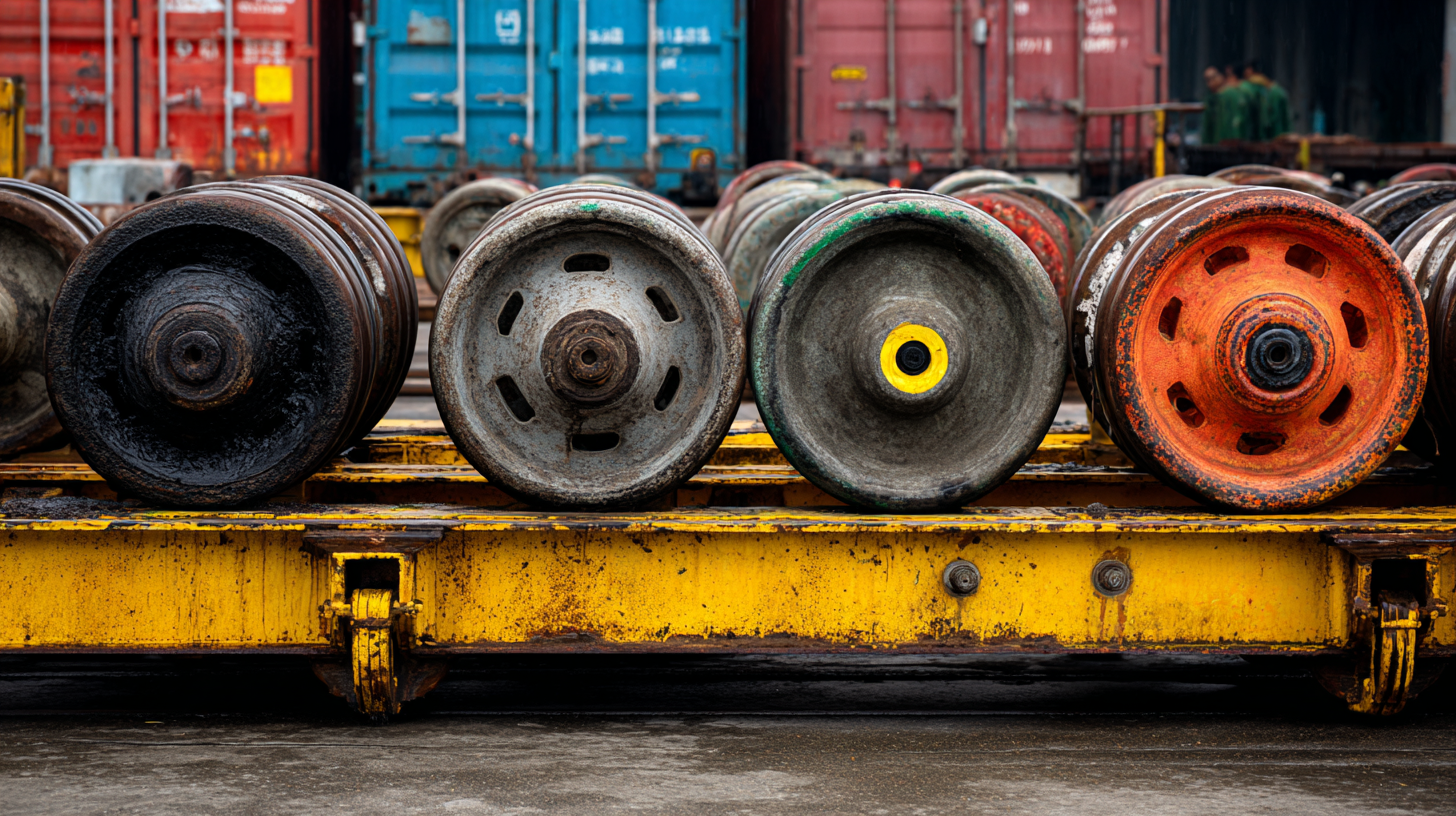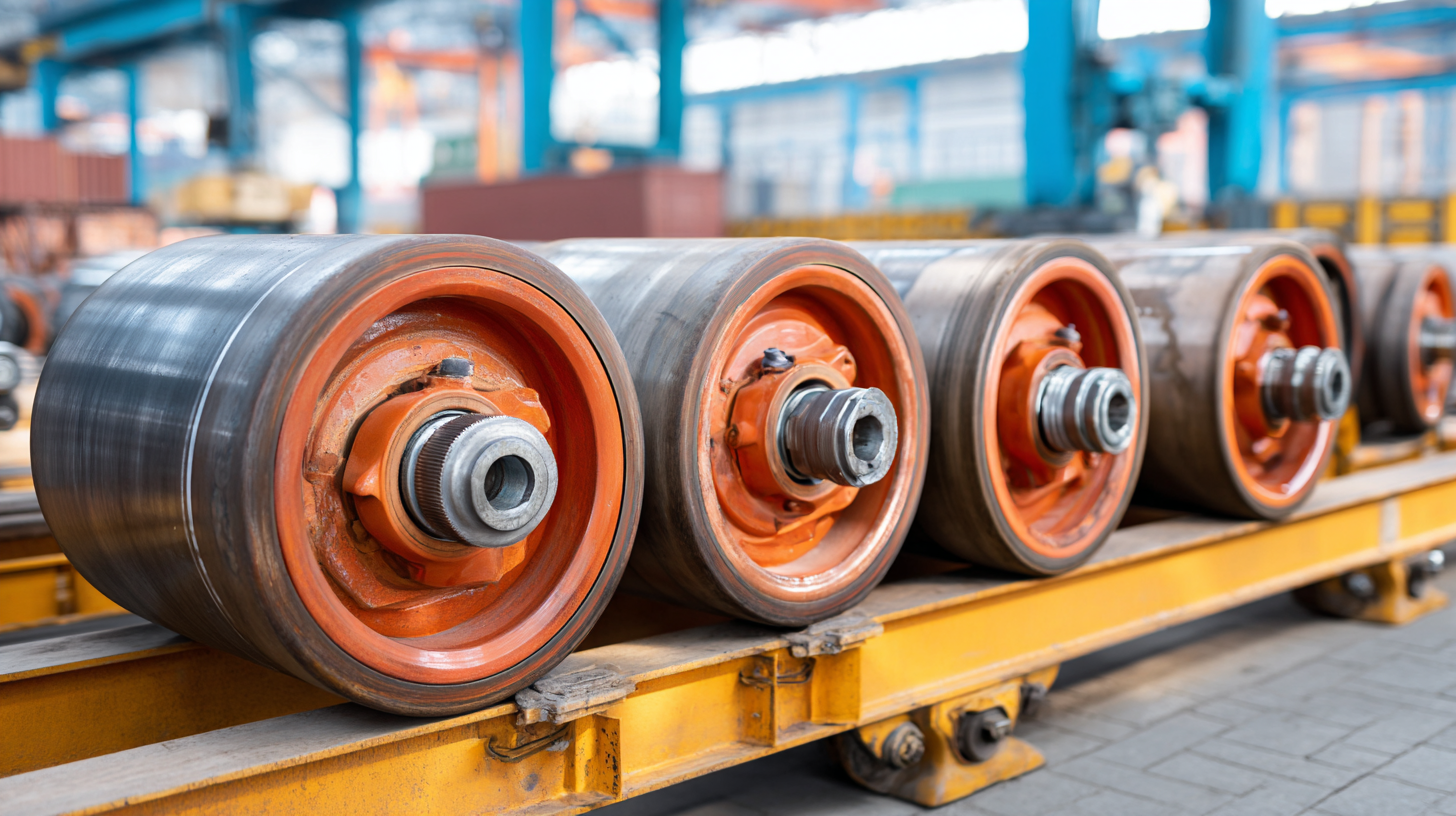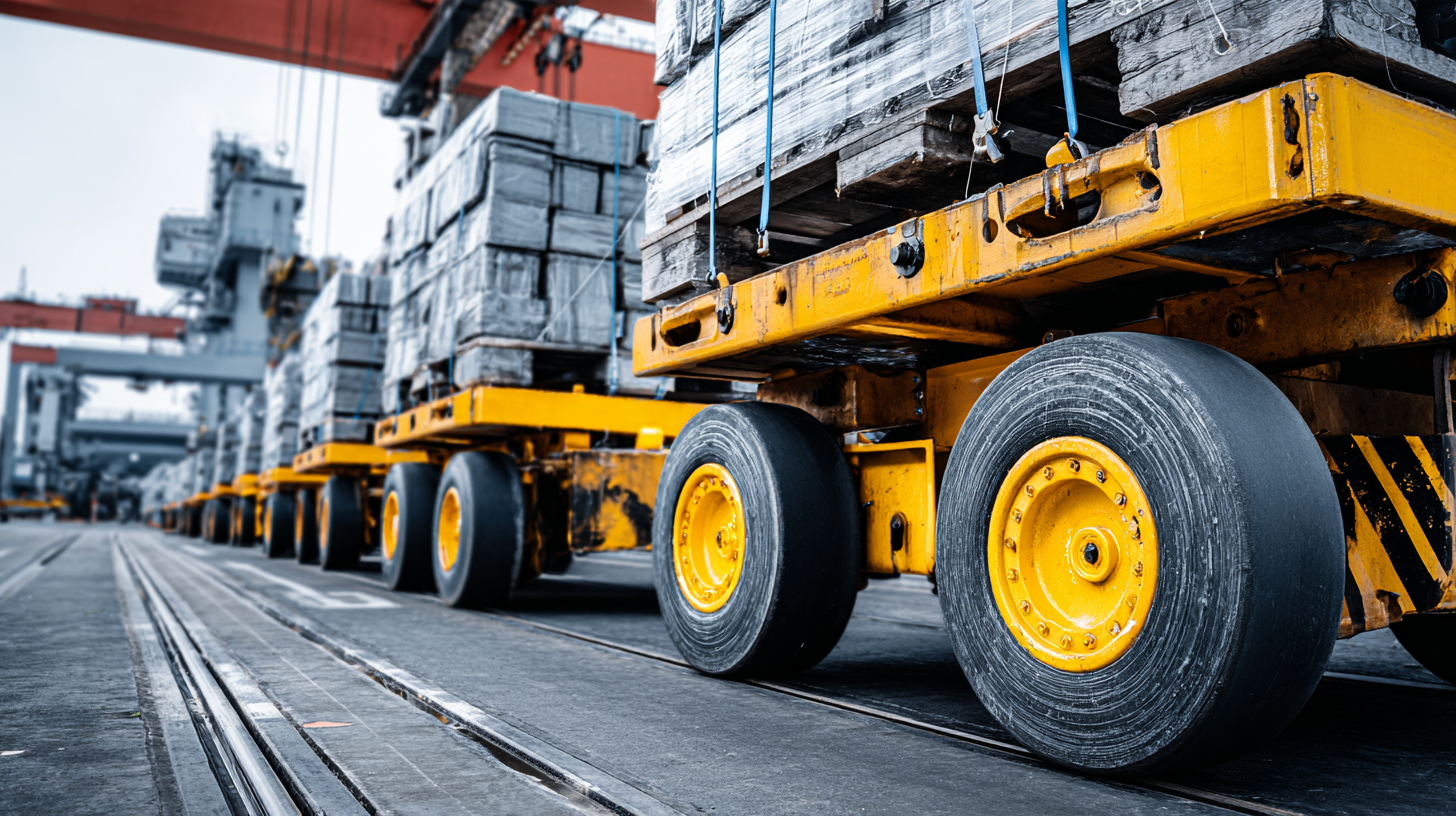
Navigating Export Certification for Best Heavy Caster Wheels: A Guide for Global Buyers
In the fast-paced global market, the demand for high-quality Heavy Caster Wheels has surged, driven by the growing logistics and manufacturing sectors. According to a recent market analysis by MarketsandMarkets, the global caster wheels market is projected to reach USD 3.1 billion by 2025, expanding at a CAGR of 7.3%. As businesses seek to streamline operations and enhance efficiency, understanding the nuances of export certification for Heavy Caster Wheels becomes crucial for global buyers. This guide aims to demystify the certification process, highlighting key requirements and best practices to ensure compliance. By navigating this complex landscape, companies can not only meet international standards but also gain a competitive edge in an increasingly interconnected marketplace.

Understanding Export Certification Requirements for Heavy Caster Wheels
When considering the export of heavy caster wheels, understanding the export certification requirements is crucial for global buyers. Each country has its specific standards and regulations, making it essential to familiarize yourself with the necessary compliance checks. Certifications such as ISO, CE, or other regional marks indicate that the products meet safety and quality standards, which can impact their acceptance in international markets.
Tip 1: Research the Destination Market - Before initiating exports, conduct thorough research on the certification standards required in your target market. Different regions may have varying requirements that could affect the certification process and timeline.
Adhering to proper export certification not only ensures compliance but also enhances the reputation of your products. Buyers should also pay attention to manufacturer's documentation and traceability, as these can often determine the ease of certification and acceptance in foreign markets.
Tip 2: Collaborate with Experts - Working with local export consultants or certification experts can streamline the certification process. Their knowledge can help avoid pitfalls and ensure all documentation is perfected to navigate the complexities of international standards effectively.
Key Industry Standards Impacting Heavy Caster Wheel Manufacturing
When it comes to producing high-quality heavy caster wheels, adhering to key industry standards is crucial for manufacturers aiming to compete in the global market. Various certifications ensure that these products meet safety and performance benchmarks, thereby enhancing their reliability in diverse applications. For instance, the American National Standards Institute (ANSI) and International Organization for Standardization (ISO) provide specific guidelines to assess load-bearing capacities, material durability, and operational safety. Compliance with these standards not only bolsters the credibility of manufacturers but also increases buyer trust in their products.

Moreover, regional regulations, such as the European Union's CE marking, play a significant role in shaping manufacturing practices. These standards often mandate rigorous testing and quality assurance protocols, ensuring that wheels are not only sturdy but environmentally friendly as well. As global buyers navigate the complexities of export certification, being well-versed in these industry standards can significantly streamline the procurement process. Understanding the implications of these regulations helps buyers make informed decisions and ensures they invest in caster wheels that meet their operational needs while adhering to safety and environmental regulations.
Step-by-Step Guide to Acquiring Export Certification
Acquiring export certification for heavy caster wheels is a crucial step for global buyers aiming to streamline their purchasing process and ensure compliance with international standards. The first step in this journey is to identify the specific regulations and standards that apply to the target market. This involves thorough research on the importing country’s requirements, including safety, environmental, and quality standards. Engaging with local representatives or industry experts can provide valuable insights into these regulations, helping buyers navigate complex legal landscapes.
Once you’ve established a clear understanding of the requirements, the next step is to prepare the necessary documentation. This typically includes product specifications, testing results, and any previous certification that might be required. Partnering with reliable manufacturers who have experience in exporting can significantly ease this process, as they often possess in-depth knowledge of certification requirements. Lastly, submitting your application for export certification may involve inspections or audits, so it’s important to remain organized and responsive throughout. By following this structured approach, buyers can facilitate a smoother acquisition of export certification for their heavy caster wheels, ensuring they meet all necessary standards for successful global trade.
Common Challenges in Export Certification for Heavy Caster Wheels
When venturing into global markets, buyers of heavy caster wheels often encounter a myriad of challenges related to export certification. One of the primary obstacles is navigating the complex regulatory landscape, which varies significantly from country to country. Buyers must familiarize themselves with specific certifications required for their target markets, such as ISO or ASTM standards. This can be overwhelming, particularly when dealing with the nuances of each jurisdiction’s compliance requirements.
Another significant challenge is the potential delays in the certification process. Compliance testing can lead to lengthy paperwork and unforeseen hurdles, delaying the shipment of products. Buyers must proactively engage with manufacturers to ensure that all necessary documentation is in order and that the products meet the required standards before embarking on the certification journey. Moreover, communication barriers can arise, complicating the coordination between manufacturers and certifying bodies. By understanding these common challenges, buyers can better prepare themselves to navigate the complexities of export certification and ensure a smoother market entry.
Navigating Export Certification for Best Heavy Caster Wheels: A Guide for Global Buyers
| Certification Type | Description | Common Challenges | Solution Strategies |
|---|---|---|---|
| ISO 9001 | Quality management system certification | Complex documentation requirements | Maintain organized records and utilize management software |
| CE Marking | Conformity assessment for products sold within the EU | Understanding EU directives and regulations | Consult experts familiar with EU compliance |
| RoHS Compliance | Restriction of hazardous substances in electrical and electronic equipment | Testing for multiple substances | Employ reliable testing labs for accurate assessment |
| UL Certification | Safety certification for electrical devices | Understanding safety standards | Keep abreast of regulations and conduct internal audits |
| FCC Certification | Certification for electronic devices to comply with FCC standards | Technical complexity of RF interference tests | Partner with accredited testing facilities familiar with FCC rules |
Tips for Global Buyers: Ensuring Compliance and Quality
When sourcing heavy caster wheels for international use, global buyers must prioritize compliance and quality to ensure a smooth procurement process. Start by familiarizing yourself with the export certification requirements specific to your destination country. Each region may have its own regulations and standards for heavy-duty equipment, which can affect not only the legality of your purchase but also its overall performance and safety.
Engaging with reliable manufacturers who can provide documented certifications and compliance records is critical. This guarantees that the products meet the necessary quality assurance benchmarks and international safety standards.

